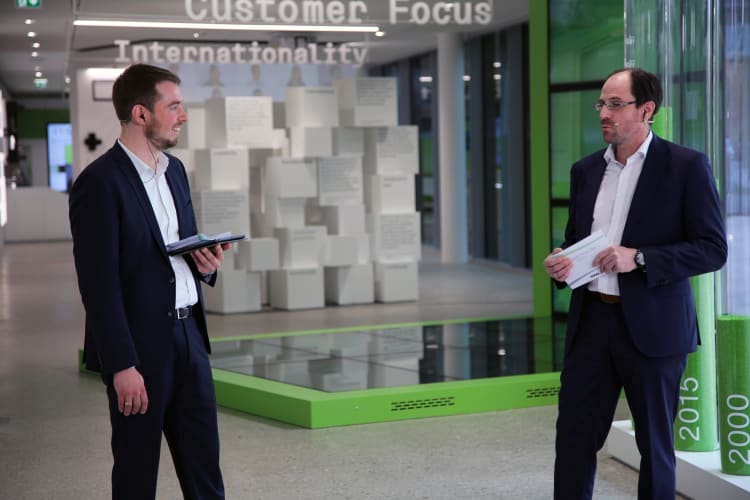
Lightweight is booming. It plays a central role in achieving climate protection targets. The Lightweight Future Day 2021, which was hosted by machine manufacturer and system solutions provider Engel in May, once again made it clear that lightweight is a key technology en route to a CO2-neutral world – and that thermoplastics will play a major role in this.
Top-class experts from all important user industries, such as automotive, bicycle and motorcycle construction, aviation, and the sports and leisure industry, as well as representatives from renowned research institutes presented state-of-the-art solutions and approaches at the Lightweight Future Day 2021. More than 500 attendees gained valuable insights from a total of 15 keynotes presenting all facets of current developments and trends in lightweight, and participated in the discussions. Each keynote was followed by a Q&A session moderated by Dr. Norbert Müller, Head of Development smart machine at Engel, and Dr. Bastian Brenken, Managing Director of Composites United. The two industry experts guided the audience through the programme with a great deal of professional expertise and created a relaxed and entertaining conference atmosphere. Due to the ongoing Corona pandemic, the Lightweight Future Day was held as a virtual event this year. The participants mainly came from Europe, with a focus on Germany, the UK and the Benelux countries, but "there were even some lightweight experts from the USA who were not put off by the conference time, which was early in the morning for them," as Christian Wolfsberger, Business Development Manager Lightweight Composites at Engel and organiser of the Lightweight Future Day, points out.
Thermoplastic composites accelerate series production
Thermoplastic composites and the matching production technology make high-volume series production far easier, as Michael Thienel, an expert in the development of door solutions at automotive supplier Brose, explained in the first keynote: "With an intelligent mix of materials, we have succeeded in developing an innovative door system here that sets new standards in lightweight, functionality and flexible design. Compared to legacy steel-based products, we save up to five kilograms, that is, 40 percent of the weight, while maintaining the same crash safety. In addition, we have achieved a wall thickness of just 0.6 millimetres." His company has supplied one million door modules made of fibre-reinforced thermoplastics (thermoplastic sheet) to Ford annually since 2018. Today, Brose is already on the threshold of series production with the next generation of door modules: the new structural element replaces other steel-based door elements. In total, this saves a further kilogram of weight per car door, and the system is also more cost-effective as the steel element.

Many keynotes at the Lightweight Future Day show that the path to state-of-the-art lightweight is often via thermoplastic processing. FACC, a specialist for lightweight components in aircraft construction, also backs thermoplastics. The company's special focus is on the future market of "Urban Air Mobility", manned air cabs and unmanned drones in urban air traffic, as Rene Adam, the company's Director Research & Technology, explained. Production volumes of 5,000 to 30,000 components per year are expected. These are significantly higher figures compared to parts production for larger aircrafts, which is around 1,000 units per year. Due to their long curing times, the thermosets primarily used in aircraft construction to date would be unable to meet the short cycle times required here.
Recycling capability makes lightweight more sustainable
But thermoplastics will probably also play a greater role in traditional aircraft construction in the future, as the aviation industry has set itself the goal of achieving climate neutrality by 2050. Rene Adam: "The production processes in the aviation industry will totally change. Hybrid casting, cold bonding and rapid forming have not yet become standard processes here. We need to significantly improve cost structures and production cycles. These are the reasons that lead us at FACC to believe that thermoplastics will be the key material for fibre composite plastics in the aviation industry looking forward."



